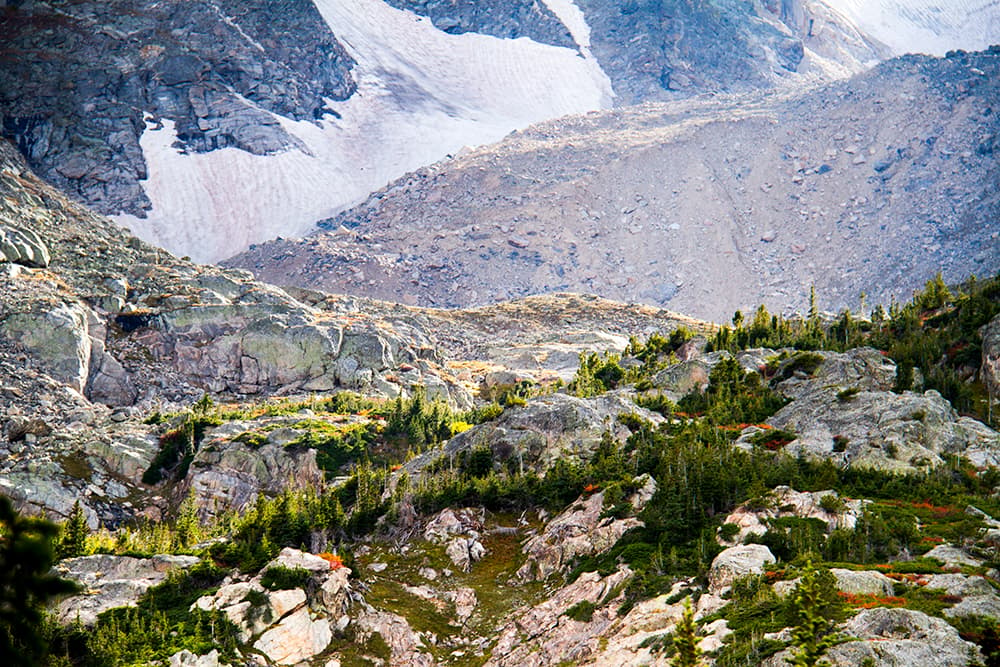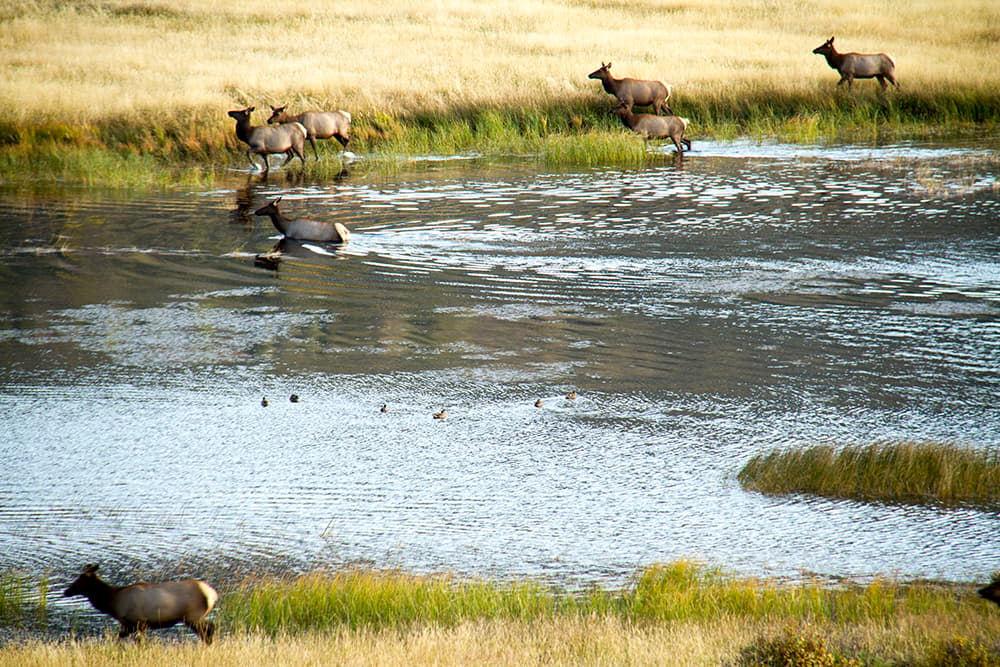
It's National Public Lands Day, and admission is free at Rocky Mountain National Park. Because I'm a certain kind of nerd, that makes it a good day to dig into the politics behind the public lands debate.
The federal government owns more than 35 percent of the land in Colorado. That's national parks like Rocky Mountain and Mesa Verde, wildlife refuges like Rocky Mountain Arsenal and Rocky Flats, vast national forest holdings, national grasslands on the eastern plains, land under the control of the Bureau of Land Management and Department of Defense facilities.
The federal government owns about 47 percent of all the land in 11 Western states, not counting Alaska.
Why? In part because they owned it to start with, if you put the "start" at some point in the early 1800s. The federal government bought land for the expanding country and won land in wars of conquest against Mexico and American Indian tribes. It then adopted policies like the Homestead Act and the Mining Law to encourage its settlement by mostly white Americans from the eastern part of the country.
In the Midwest, most of the land eventually was given away and ended up in private hands. In the Western United States, a much larger share of the land stayed in federal hands for reasons related to geography and ecology and economy. The arid lands of the West required more management to be used by a large number of people, and these policies shaped the West as we know it today. There's always been a certain amount of conflict baked into this arrangement, though.
In the 1970s, Nevada started what was called the Sagebrush Rebellion.
The state filed a lawsuit to claim the Bureau of Land Management lands in Nevada for itself. This was ultimately unsuccessful, but attempts to bring federal lands under state control have ebbed and flowed ever since.
In 2012, the Utah state legislature passed the Transfer of Public Lands Act to try to claim federal lands there. That also didn't work, and this probably isn't something the states can compel the federal government to do, unless enough people in Congress want to change federal law and you have someone in the executive who's supportive.
Bob Beauprez made public lands an issue in his unsuccessful gubernatorial run in 2014, and several bills related to local control of public lands were introduced in the Colorado General Assembly in 2015. Only one of them, a bipartisan compromise measure that gives local communities a larger voice in federal land use decisions, passed.
The long-running public lands issue was at the heart of the standoff at the Bundy Ranch in Nevada in 2014. Cliven Bundy had refused to pay his grazing fees on BLM land and allowed his cattle to roam feral, unbranded and starving. When BLM employees tried to round up the cattle, Bundy blocked them with the armed support of sympathizers from around the country. The government ultimately backed down. Then early this year, two of Cliven Bundy's sons led an occupation of the Malheur National Wildlife Refuge in Oregon to demand that the federal government give the refuge, created in 1908, back to the state or the counties or the people. (The mechanism was always a little unclear.) That time, the standoff ended in the death of one of the occupiers and the arrest of many others.
While the Malheur occupation represents an extreme end of the spectrum, it's a measure of this movement's connections to the Republican Party that state legislators from several Western states visited Malheur under occupation.
What's the case for and against federal lands being transferred to the states?
American Lands Council advocates for the transfer of federal lands to the states, where they would still be managed as public lands. They would exclude national parks; those would stay in federal hands. They support more access and economic activity on public lands, and they say the money generated from those activities would help pay for better management of the land and particularly the forests. Federal policies are contributing to a scarcity of jobs in rural areas, they say, and the situation could be improved with more local control.
Conservation groups oppose transferring public lands to the states because they don't think the states will keep important environmental protections in place, especially if the transfers are driven by a desire to see more economic activity. But they aren't the only ones opposed. A lot of hunters and fishers also want to keep public lands in federal hands, and there are questions about costs. As it stands now, grazing fees are much higher on state land in Colorado than on federal land. The National Forest spends more than $3 billion a year on firefighting, a cost that would have to be born by the states if they took over those lands.
Many people fear that the costs associated with managing public lands will lead to more of them being sold off if the states owned them. Or that that's the end game of a land transfer, something the American Lands Council denies.
The Republican Party's platform formally calls for transferring control of federal lands to the states. Donald Trump's campaign has given mixed messages on the issue. When asked about public lands by 9 News in July, Trump said he was "going to look into that" as if he didn't know much about the issue, but back in January he told Field and Stream that public lands should stay public because the states might not do a good job managing them.
In Idaho and in Colorado this week, Donald Trump Jr. -- an avid hunter, among other characteristics -- said his father would look for ways to include locals more in decisions while making sure "public lands stay public."
Hillary Clinton has an extensive plan for how to deal with public lands that you can read about here. It calls for more access and economic opportunity while keeping public lands in the hands of the federal government. There's also stuff about protecting water quality and revitalizing our city parks. It's very thorough.

What's at stake? Just the future of the West as we know it.
For an interesting take on public lands from someone who felt a natural sympathy for those standing in opposition to the federal government, read Hal Herring's "The darkness at the heart of Malheur" from High Country News.
Those who want to see a transfer of public lands to the states often depict a proverbial "little guy" oppressed by the big, bad government, but Herring fears lands in state hands will inevitably be privatized. And when that happens, it will be the end of the "little guys." Grazing leases on public lands have meant small ranchers can get access to much larger territory without paying taxes on it or having to maintain it. When the land goes on the auction block, they won't be able to compete with the wealthy and powerful, and hundreds of thousands of acres will fall into the control of a few families and individuals.
"There will be no repeating the free-grazing era of the late 19th century," Herring writes. "Not in the fastest-growing developed nation on Earth, on a planet that will soon play host to 9 or 10 billion human beings. Nothing will be free."
Go read the entire thing, and then consider getting outside while you still can.
Assistant Editor Erica Meltzer can be reached via email at [email protected] or twitter.com/meltzere.
Subscribe to Denverite’s newsletter here.












